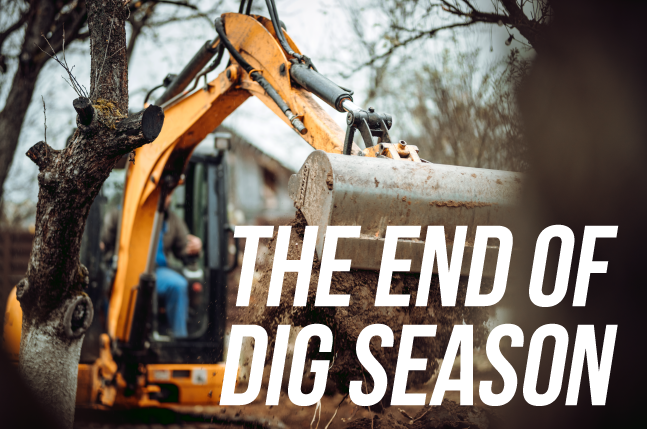It's time to build your plan
As we reach the end of dig season, it's time to review what has gone before, build upon the successes and improve upon the weak points of what's gone before.
QUICK STRATEGY LIST
- Review your Dig Season
- Set out your target goals
- Build a strategy
- Deploy your strategy
- Reach "Success"
1. REVIEW
Reviewing what successes and losses you've had over the past months during this years dig season is imperative to improving going forward.
There are a couple of different ways you can tackle this. If you've got Locate Ticket Management Software (like Utilocate) you can access the data from it and build an informed picture of number of tickets processed, speed of locate completions etc. Building this picture from your data based upon the metrics that are important to you can your company will enable you to accurately portray the dig season without bias. This is quantitative data. You may already be doing this on an ongoing basis, and that is commendable, but it's important to take a birds eye view of all this data and zoom out to a broader timeline like the dig season. From here you can notice trends and find weak points and strengths.
The other data source for creating your review is your staff. Getting their feedback from the dig season and finding out what solutions they've implemented in the field, what issues they're facing and what they've struggled with will allow you to complete the picture and fill in some of the holes in your quantitative data. This will also show your staff that you're concerned with them and the challenges they face in the field.
2. GOALS
Now that you've got your review and data in place you've got to figure out your goals for the next dig season. These goals should line up with Damage Prevention principles and your business goals. Some common goals for locate companies are:
- completing more locate tickets,
- reducing unlocatables
- Reducing damages
But these goals are too vague and unspecific. You want to have measurable, specific goals which you can aim for and track progress toward - that's why Step 1 requires quantifiable data. So your goals and targets should look more like:
- Complete 20% more locate tickets on time/ month
- Reduce Unlocatables by 35%
- Reduce damages by 50%
3. STRATEGY
Building a strategy is a lot easier when you've got clear goals backed by data. You can breakdown specific metrics and make goals for individual locators based on how they've performed in the last year versus the target goals you've set out for the next dig season. Breaking down goals by teams or individual goals is important because you can influence results better by focusing on macro and micro issues. Starting to build your strategy now is a good idea because this years dig season is fresh in everyone's mind and you can align it with your business goals too, for a more unified vision.
Some outcomes of putting your strategy in place might be:
- the need to hire more locators
- adopting new technologies and/or software
- extra training for locators
- separating locators into dedicated teams based on utilities
Having data on your side will make it easier for you to draw together your objectives and goals into an achievable strategy.
4. DEPLOY YOUR STRATEGY
In order to successfully deploy your strategy you need to set out a timeline for its rollout. This will probably start before the next dig season as you acquire new equipment, hire staff, adopt new technologies, and train staff. In addition you could have goals for weekly and monthly reviews and different parts of your strategy could unfurl depending on achieving certain goals. It's good to stay dynamic as your roll out the plan and have sub-strategies in place to meet challenges that arise unexpectedly.
"Those who fail to plan, plan to fail"
5. Reach "SUCCESS"
Success will depend on your goals and achieving them. Utility locating has many unexpected hurdles and unknowns so it can be hard to say at the end of your dig season that you've succeeded. Reaching "Success" in this sense, means that you've reached or exceeded your goals and that you're able to keep going an improving as we all aim for ZERO DAMAGES
CONCLUSION
For any company to be successful in utility locating and damage prevention they need to have goals and exceed them. Having a utility locate ticket management solution in place is vitally important and that's where Utilocate comes in! To find out more go to Utilocate.com or check out the video below:

